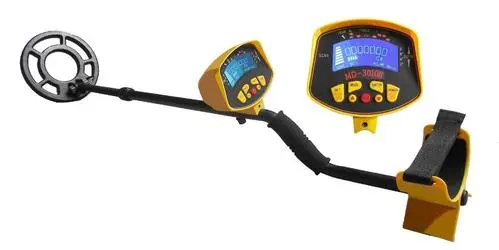
Metal detectors have long been essential tools in various industries, including security, archaeology, and treasure hunting. With the integration of Bluetooth modules, these devices have become even more versatile, offering enhanced functionality and connectivity. This article explores the applications and benefits of Bluetooth modules in metal detectors, highlighting their role in improving efficiency and user experience.
Introduction to Metal Detectors and Bluetooth Integration:
Metal detectors are electronic devices designed to detect the presence of metallic objects buried underground or hidden within other materials. Traditionally, these devices relied on wired connections for data transmission and control. However, the integration of Bluetooth modules has revolutionized the way metal detectors operate, offering wireless connectivity and advanced features.
Bluetooth modules in metal detectors enable seamless communication with smartphones, tablets, or other compatible devices. This wireless connectivity allows users to control the detector remotely, receive real-time alerts, and access additional features through dedicated mobile apps.
Enhanced User Experience and Accessibility:
The integration of Bluetooth modules enhances the user experience by providing greater flexibility and accessibility. With wireless connectivity, users can operate the metal detector from a distance, allowing for more comfortable and efficient use, especially in challenging terrain or weather conditions.
Bluetooth-enabled metal detectors also offer improved accessibility for users with disabilities. By providing audio or visual alerts through connected devices, these detectors ensure that all users can effectively detect and locate metallic objects, regardless of their physical abilities.
Data Logging and Analysis:
Bluetooth modules in metal detectors facilitate data logging and analysis, enabling users to capture and review detection data in real-time. Connected devices can store detailed records of detection events, including the type of metal detected, its location, and the depth at which it was found.
This data logging functionality is particularly valuable for archaeological surveys, where precise documentation of findings is essential for historical research and preservation. Bluetooth-enabled metal detectors allow archaeologists to catalog discoveries accurately and analyze patterns of human activity over time.
Collaborative and Multi-User Applications:
Bluetooth integration enables collaborative and multi-user applications, allowing multiple detectors to communicate and coordinate their efforts in real-time. This capability is especially useful in large-scale excavation projects or security operations where multiple detectors are deployed simultaneously.
With Bluetooth-enabled metal detectors, teams of archaeologists or security personnel can share information, coordinate search patterns, and synchronize their findings effortlessly. This collaborative approach enhances efficiency and improves the chances of discovering valuable artifacts or detecting security threats.
Future Directions and Innovations:
As technology continues to advance, the applications of Bluetooth modules in metal detectors are expected to expand further. Future innovations may include integration with augmented reality (AR) interfaces, enabling users to visualize detection data in 3D space and enhance situational awareness.
Furthermore, advancements in sensor technologies, such as multi-frequency detection and artificial intelligence (AI) algorithms, may improve the accuracy and reliability of metal detectors. Bluetooth-enabled detectors may also incorporate machine learning capabilities to adapt to different environments and optimize detection performance.
Conclusion:
In conclusion, Bluetooth modules play a crucial role in enhancing the functionality and connectivity of metal detectors, offering improved efficiency, user experience, and collaborative capabilities. From remote operation and data logging to multi-user applications and future innovations, Bluetooth-enabled metal detectors are poised to continue shaping the fields of archaeology, security, and treasure hunting for years to come.


